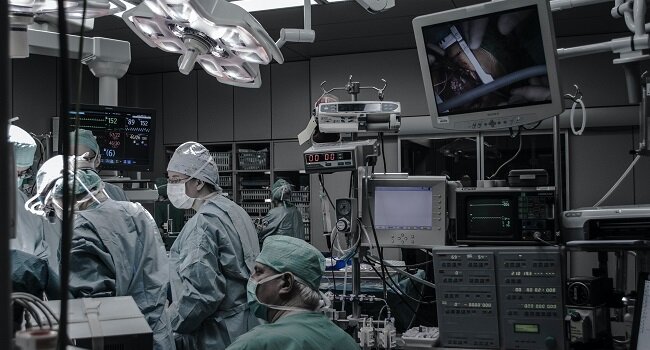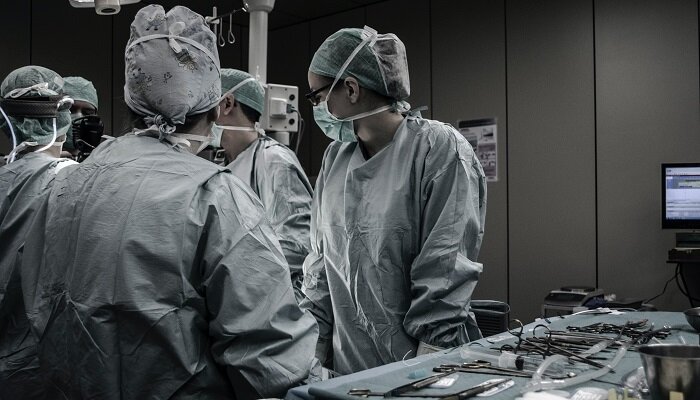Are you considering a vasectomy reversal procedure? Many individuals have undergone this outpatient process to restore fertility, either for personal reasons or to expand their families. This blog post will provide comprehensive information about the process and give you an insight into what it entails. You’ll learn everything from when it’s best to consider a reversal procedure, potential risks of the operation, available treatment options, success rates, insurance coverage, and costs associated with going through this option. Read on to find out whether undergoing a vasectomy reversal could be right for you!
Understand the Procedure
A vasectomy reversal is a surgical procedure that reverses the effects of a vasectomy, allowing a man to father a child again. During the surgery, the surgeon will reconnect the severed tubes that carry sperm from the testicles to the penis. This procedure typically involves the use of a powerful microscope, which allows the surgeon to precisely reconnect the tubes. The surgery typically takes between two and four hours, and it is usually performed under general anesthesia. After the surgery, patients can expect a recovery time of around three weeks, during which they should avoid heavy lifting and sexual activity. While the procedure is generally considered safe, it is important to understand the risks involved and to discuss them with your surgeon before making a decision.
Benefits of the Procedure
Couples struggling with fertility issues understand the heartbreak of trying to conceive with no success. Thankfully, advancements in medical treatments have provided options for improved sperm quality and increased fertility rates. The benefits of vasectomy reversal surgery go beyond just increasing the odds of conception. By improving sperm quality, this procedure can also lead to healthier and stronger offspring. It can be life-changing for those who have been trying to start a family for years. With the increased chances of success, couples can finally focus on the joys of parenthood without the stress and disappointment of infertility.
Risks and Complications of the Procedure
Undergoing a vasectomy reversal can be a daunting decision and, understandably, one that comes with certain risks and complications. Pain and bleeding are common issues that can be managed with medication and post-operative care, but infections are a more serious concern. It’s important to follow the aftercare instructions carefully, as this will help prevent the likelihood of developing an infection. Scarring is another potential complication, but this often fades over time and can be minimized by choosing an experienced and skilled surgeon. Incomplete vasectomy reversal is a rare outcome, but it’s a risk that every patient should be aware of before making the decision to undergo the procedure. Overall, although there are risks and complications associated with vasectomy reversal, the chances of experiencing any severe issues are low.
Cost of the Procedure
If you’re considering a vasectomy reversal, one of the most important factors to consider is the cost. There are several factors that can affect the pricing of the procedure, including the surgeon’s experience, the location of the clinic, and the complexity of the reversal. Insurance coverage may also play a role in determining the final cost, so it’s important to check with your provider ahead of time to see what your policy covers. While the cost of a vasectomy reversal may seem daunting, it’s important to remember that the procedure can be a game-changer for couples who have changed their minds about wanting children. So, if you’re ready to take the next step in your family planning journey, it may be time to consider a vasectomy reversal.
Preparation for Surgery
Preparing for surgery can be a daunting process, but it’s important to remember that these steps are taken to ensure the best possible outcome. In the case of a vasectomy reversal procedure, preoperative tests are typically required to assess your overall health and readiness for surgery. These tests may include blood work, urine tests, and possibly an electrocardiogram (ECG) or chest x-ray. Additionally, it’s important to follow any restrictions on physical activity during recovery, which may include avoiding heavy lifting or strenuous exercise for several weeks following the procedure. By following these guidelines, you can help ensure a smooth and successful recovery.

Questions to Ask Your Doctor Before the Procedure
Making the decision to undergo a vasectomy reversal surgery can be a daunting task, which is why it’s essential to ask your doctor specific questions before proceeding with the procedure. One of the most critical questions to ask is about the type of anesthesia used during the surgery. It’s essential to understand the possible side effects and risks associated with anesthesia before the operation. In addition, asking about potential results and outcomes can be incredibly valuable. Your doctor can provide insight into your chances of success and what to expect after the surgery. These questions can help you make a well-informed decision and feel more confident about the process.
It is important to understand all aspects of a vasectomy reversal before making the decision to undergo the surgery. The benefits of the procedure, including improved semen quality and increased fertility rates, can be life-changing for some couples. However, it is also necessary to understand the risks and potential complications of undergoing this type of procedure. Moreover, cost and insurance coverage for the procedure must be taken into consideration when exploring vasectomy reversal options. Finally, it is important to ask questions regarding the types of anesthesia used and potential results & outcomes prior to going through with the procedure so you are better prepared for what lies ahead. For men considering this form of permanent birth control reversal, it is important to have all the facts before making any decisions related to vasectomy reversals.



















